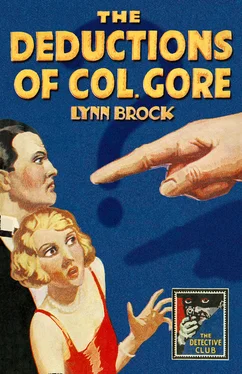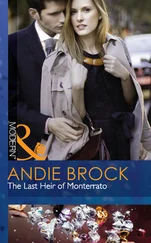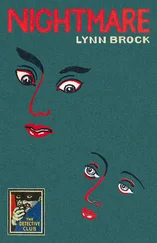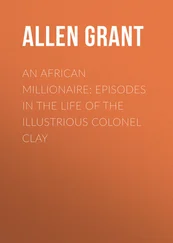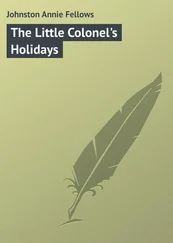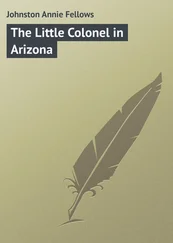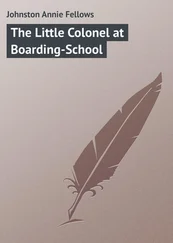IT was, it appeared, Sir James Wellmore’s inviolable rule to get out of his bed at seven o’clock and get into it again before midnight, and at half-past eleven he and Lady Wellmore departed in an immense limousine. Miss Heathman, silent and vague-eyed to the last, accompanied them; the big house on the Promenade of which she was the capricious mistress, lay on the Wellmores’ homeward way across the Downs to their palatial mansion at Bishops Leaze. The Arndales had gone away before eleven o’clock hurriedly, disturbed by a telephone-message requiring, Gore presumed, Mrs Arndale’s immediate return to some urgent trouble of the baby, with details of whose incredible brilliancy of intellect and beauty of form she had regaled him at intervals during dinner. It was twenty minutes to twelve when he and Barrington made their adieux to Mrs Melhuish and went down the stairs accompanied by their host.
As Clegg helped him into his overcoat, in the hall, Gore glanced at the artistically-arranged trophy which occupied the wall space between the hall door and the door of the dining-room. His wedding present made, he reflected, quite a decent display, the two befeathered Masai head-dresses and the scarlet-and-ochre magic-mask forming an effective centre to the design. The shaft of one of the Wambulu spears had developed some mysterious breed of worm some months after its arrival, Melhuish told him, and had been replaced by a new one.
‘Hope your maids aren’t curious about cutlery, doctor,’ Gore grinned, as he accepted a light for his cigarette. ‘I mean—those hunting spears are probably quite safe. But those little arrows—and the knives—Well, I think I inserted lavish warnings in the packing-cases. I hope I did.’
Barrington fitted a cigarette into a long amber holder.
‘What?’ he asked. ‘Bad medicine, are they?’
‘Possibly very nasty indeed,’ said Gore—‘some of them.’ He touched the beaded sheaths of two small knives, crossed to form the lower point of the trophy. ‘These two little brutes, for instance … I shouldn’t mind betting that if you were thoughtless enough to scratch yourself with one of these—even after three years—something exceedingly unpleasant would happen you in the next few minutes. I’ve actually seen a poor beggar die in less than two minutes from a prick of one of those little throwing-knives … Die most untidily, too.’
‘What’s the poison?’ asked Melhuish, with professional interest. ‘I remember now that my wife did say something about the cautions you sent her. But I’m afraid we had both forgotten all about them.’
‘It’s a root called “nmakato.” Not in the B.P., I rather fancy, doctor. We didn’t succeed in seeing the root itself. As a matter of fact, the old witch-doctors who distill the stuff are rather reticent about little trade-secrets of that sort. I saw the flowers of the thing, though—yellow—not unlike our gorse, both to look at and to smell. They use the flowers to make wreaths for their young women when they retire into seclusion to think over the joys of matrimony for a month or so before they plunge into them.’
He held out his hand. ‘Well, we shall meet again, doctor, no doubt.’
‘You haven’t decided yet how long you’ll stay in Linwood?’
‘Some weeks, at any rate, I hope. Good-night.’
‘You coming my way, Colonel?’ Barrington asked, as the hall door opened to let them out into the foggy dampness of the November night.
‘I’m at the Riverside,’ Gore replied. ‘Just across the way.’
‘Oh.’
Barrington turned to his host.
‘Good-night, doctor. I shall run in and see you tomorrow or next day. I’ve been sleeping a lot better since I cut tobacco right out. But I still get those nasty twinges …’
Melhuish nodded gravely.
‘Come and see me. I hope you’ll find Mrs Barrington’s earache better when you get back. Please tell her how sorry we were that she was unable to come.’
‘I will. Good-night.’
‘Good-night.’
The two departing guests sauntered side by side for a few yards, chatting desultorily until their paths diverged—Gore’s towards the hotel, the lights of whose upper windows were visible through the branches of the trees in the Green, his companion’s along the deserted vista of Aberdeen Place, at the end of which the Corinthian façade of the club rose palely in the glare of the arc-lamps in the Mall.
‘My old heart’s worrying me a bit,’ Barrington explained. ‘I’ve had to cut out most of the joys of life—temporarily, at any rate.’
Gore murmured sympathetically.
‘Bad luck. You’re in good hands, though.’
‘Melhuish’s? None better. You a bridge player?’
‘Incurable.’
‘Then I expect I shall run into you at the club.’
‘I expect so. Remember me to your wife, won’t you? She and I are very old friends.’
‘Indeed? She’ll be delighted so see you any afternoon you care to run in. Hatfield Place—Number 27. Don’t forget.’
‘Twenty-seven. Many thanks. Good-night.’
‘Good-night, Colonel.’
The two parallel rows of tall houses which formed Aberdeen Place and Selkirk Place respectively faced one another, at the distance of a long stone’s-throw, across the Green—a pleasant strip of ornamental garden enclosed by railings for the exclusive use of residents, and running the entire length from Albemarle Hill at the western end to the Mall at the eastern. For convenience’ sake two transverse passages of roadway divided the Green into three detached sections, roughly equal in length. Gore’s path from the Melhuish’s house to the back entrance to the Riverside Hotel—the front entrance was in Albemarle Hill, overlooking the river—lay along one of these two cross passages, and when he had parted from his fellow-guest, therefore, a very few steps interposed between him and Barrington the railings of the middle section of the Green and the shrubs and trees which formed, inside the railings, the ornamental border of the garden. Happening to glance backwards, however, for no more particular reason than that his ears had informed him that the retreating sound of his late companion’s footsteps on the pathway had ceased abruptly, he caught a glimpse of Barrington halted beneath a lamp, facing another man—taller, and wearing a light-coloured raincoat—the sound of whose voice, raised, it seemed to Gore angrily, reached his ears indistinctly during the instant for which he slackened pace to look back. Afterwards he recalled that in that brief instant he had wondered a little from where that taller, raincoated figure had emerged; since, while he had lingered chatting with Barrington not a soul had been in sight in Aberdeen Place against the glare of the Mall. He was to recall, too, that something in the build and size of the second man had suggested Cecil Arndale vaguely—but just how vaguely or how accurately he was afterwards quite unable to weigh. These particular speculations, to which at the moment he attached no importance of any kind, were destined subsequently to assume one of very serious concern to him. For, in fact, as it proved, that hurried, careless, backward view of Barrington, partially blocked out by the laurels, yet unmistakable, was the last he was to see of him alive.
He went on his way, turning left-hand as he reached the roadway of Selkirk Place, which terminated in a cul-de-sac at the pillared gates admitting to the grounds of the Riverside. Beside the gates a three-storied red-brick building, comprising a retail-bar on the ground floor with some living-rooms used by the staff above, formed the rear of the hotel, connected with the main block facing the river by the annexe in which Gore’s suite lay. The bar, a discreetly-managed, quiet little place, unexpected in that exclusive residential quarter of the suburb, catered principally, Gore surmised, for a regular little clientèle of chauffeurs and coachmen from Selkirk Lane. The lane which branched off northwards from Selkirk Place at its doors was bordered by stables, most of them now converted into garages, and provided, no doubt, a considerable number of such customers.
Читать дальше
